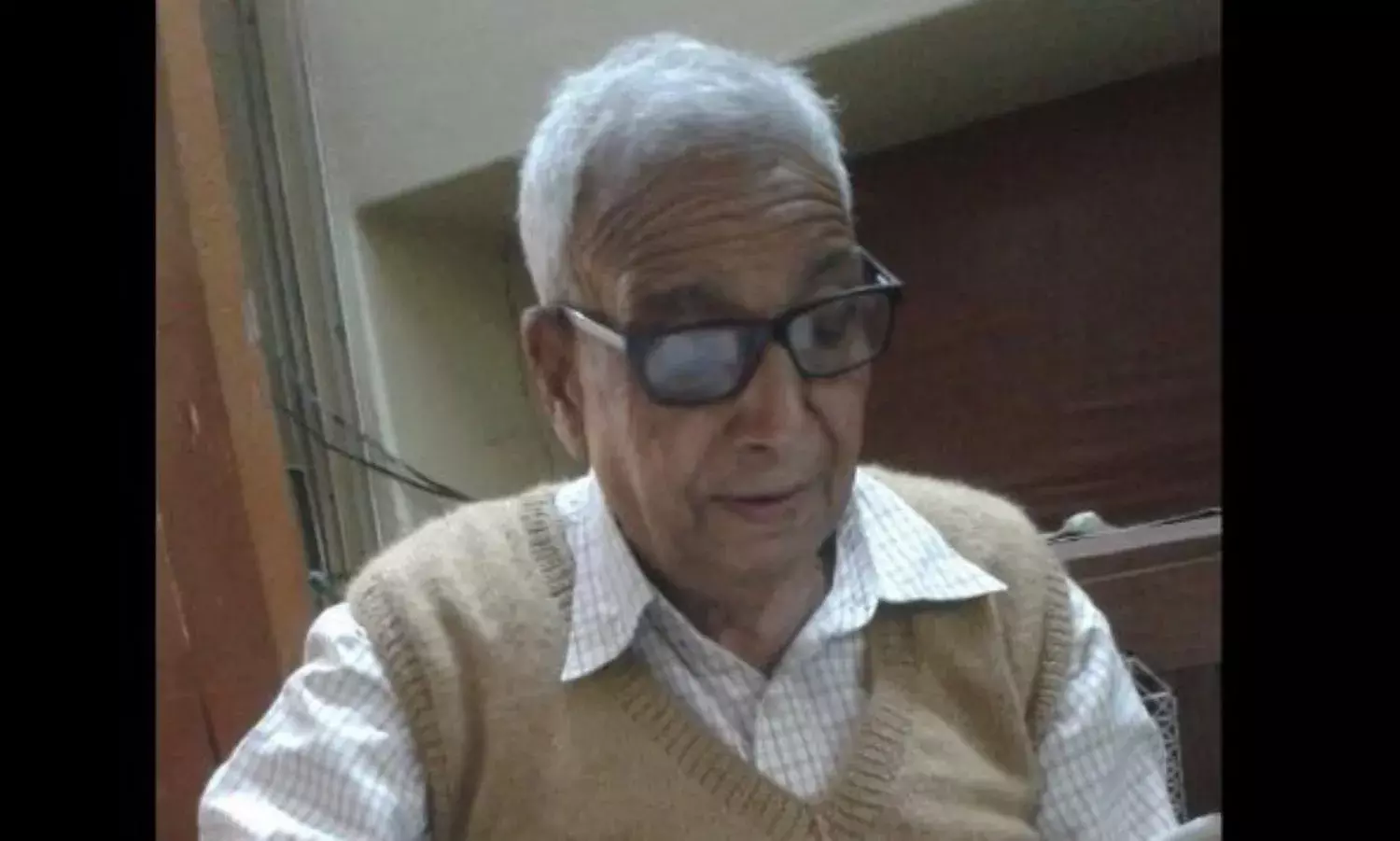'I Believe in Facts, Not Ideologies': Sheetla Singh
#Demolition 2019: 'The Hindu right is divided today'

The Citizen marks its coverage of the anniversary of the demolition of the Babri mosque on December 6,1992 with the interview of a senior, courageous journalist from a small little newspaper in Faizabad who stood strong then with his bold, courageous coverage. And stands strong still. Ribhu Ranjan reports:
NEW DELHI/ FAIZABAD: December 5 will mark the 60th anniversary of Jan Morcha (People’s March), a daily newspaper known for its unique and unparalleled position as the only paper in India successfully owned and managed by its employees and readers, uninterruptedly since 1958.
Jan Morcha, a cooperative which is published from Faizabad, Lucknow, Allahabad and Bareilly is also known for its direct and unbiased coverage of the demolition of the Babri Masjid on December 6, 1992, and the events before and since.
The Citizen spoke to Sheetla Singh, the 85 year old founder editor of the newspaper, on the Babri demolition and the difficulties faced by Jan Morcha in its course of 60 years.
Could you explain what makes Jan Morcha a unique venture?
The first press commission, which was formed under the chairmanship of Justice J.S.Rajadhyakhsa on September 23, 1953 by the Ministry of Information and Broadcasting, believed that the freedom of expression of newspapers was under threat.
Proprietorial interests in daily and weekly newspapers were a cause for concern. Industrialists were trying to own newspapers or start their own papers and use them for profit making.
Commercial interests cannot be allowed to override editorial considerations. Editorial freedom must come first. The freedom and independence of the editor is the crux of the matter.
Inspired by this thought, we set up a cooperative in 1958 with the assistance of various journalists and readers. Cooperatives promote plurality of ownership. By establishing a cooperative we avoided concentrated control in a few hands.
Concentrated control over news never leads to a fair presentation of news.
How did you survive through six decades, and sanctions imposed by the government?
It is never easy to run a newspaper if you believe in the core ethos of journalism, which is “Journalistic freedom is the heart of the freedom of the press, and the exercise of this freedom depends largely on the editor.”
We often ran into trouble for exercising this core ethos in our work, especially during the period of Emergency.
Our accounts were audited by the government, which charged us often with falsifying our accounts. They imposed sanctions on Jan Morcha and tried to restrict its publication. We have been charged five times, and each time we went to the judiciary and defeated the sanctions of the government.
We fought for the freedom of expression sanctioned to the Press under Article 19 of the Constitution.
I remember the time, when the late Vishwanath Pratap Singh was chief minister of Uttar Pradesh. He formed a committee to monitor the freedom of press in the state. He advocated that this committee shouldn’t have an IAS (Indian Administrative Service) officer, and replaced this member with a retired High Court justice.
It is difficult to find leaders like him. Everyone tries to control the freedom of press, and this urge is at its peak in the current regime.
How did you carry reporting assignments in the wake of the demolition of the Babri Masjid on December 6, 1992?
Reporting should be done on the facts and it should never be driven by your own beliefs and ideologies.
I and my team exercised the same principle of reporting facts. We reported facts.
The late Justice R.S.Sarkaria in his report applauded us for our reportage. In the same report, he censored five big newspapers of India hinting at vested interests in their reports.
What is your view of the current narrative of the Babri Masjid Ram Janmbhoomi case?
I believe in facts and not in ideologies. Personal beliefs compromise the report.
I observed that the demolition of 1992 was driven by the will and beliefs of volunteers of right wing groups. These volunteers were highly polarised in their beliefs when they marched to Ayodhya, whereas in the present day the situation is a bit different.
Now, volunteers are being paid by Vishwa Hindu Parishad (VHP) and other right wing groups to visit Ayodhya and attend events like the recent Dharma Sabha.
Beliefs are not as strong as 1992. Also, there are factions within the VHP who would prefer to resort to the judicial mechanism rather than adopting an unconstitutional way of solving the problem. Hindu Right groups are divided among themselves.



